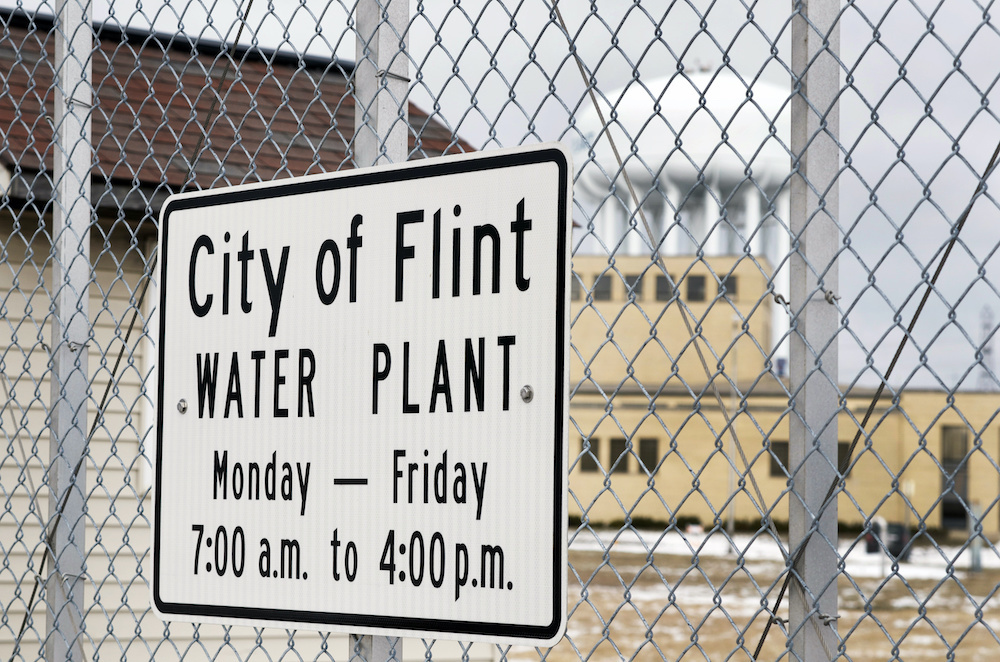ANN ARBOR, Mich. (Legal Newsline) - Three Flint residents have filed an objection to the $200 million fee plaintiff lawyers want to carve out of the $641 million the State of Michigan and other defendants have agreed to pay to settle lawsuits over lead contamination, saying it is at least three times too high and unfairly penalizes claimants who haven’t hired lawyers.
The objectors are represented at no cost by the Hamilton Lincoln Institute’s Center for Class Action Fairness, which frequently intervenes in class actions and mass-tort cases to question the fees plaintiff lawyers are charging their clients.
In the Flint water cases, lead plaintiff lawyers Levy Konigsberg and Napoli Shkolnik have asked a federal judge to approve a 6.33% “common benefit” fee for themselves as well as a 27% fee to be charged to most other claimants, regardless of whether they have their own lawyers. The State of Michigan will pay the bulk of the money and has told the court it won’t offer an opinion on the size of the fee. But in recent public comments, Michigan Attorney General Dana Nessel said the request seems like “a very high number.”
The objections come after a bitter fight for control early in the litigation as Levy Konigsberg and Napoli Shkolnik accused each other of unethical practices including charging excess contingency fees and handing out billable hours to other law firms in undisclosed side deals.
In its filing objecting to the fees, CCAF says its pro bono clients don’t object to the general concept of a common-benefit fee, but that it must be supported with better documentation and there is no reason to charge claimants who participate in the settlement without hiring a lawyer. The objectors also say the court should require law firms to provide detailed billing records to claimants and disclose how they are distributing fees among themselves.
The motion for fees "includes scant detail about the claimed common benefit work, does not even estimate what the common benefit fees might amount to, and provides absolutely no evidence that ceding 27% of claimants’ recovery to private attorneys for work sight unseen could possibly be fair to Flint residents who need this money to help them grapple with oft-debilitating, ruinous, and violent consequences of lead exposure for their entire lives,” the CCAF filing says.
To bolster his arguments, Hamilton Lincoln attorney Frank Bednarz referred to some of the comments the two firms previously made in court in the objectors’ March 29 filing. For example, Hunter Shkolnik, in an April 2018 filing, criticized Cohen Milstein for dispensing billable hours to other law firms in “secret side deals.”
That practice, common in class actions, can help a law firm seeking control of the litigation avoid conflicts with competing firms. Cohen Milstein, meanwhile, criticized Napoli Shkolnik, a prominent asbestos law firm, of sweeping into Flint and signing up as many clients as possible under fee agreements that exceeded Michigan’s 33% cap on contingency fees. Napoli Shkolnik later amended its contracts to comply with the cap.
“Class and Liaison Counsel were both right!” Bednarz wrote in the objection. “But it appears they set aside their demands for rigor and scrutiny because they have jointly agreed to take more from claimants.”
The fee request is also excessive in light of the trend in courts to award lower percentage fees in “mega-fund” settlements over $100 million, CCAF argues. In a class action, the lawyers write, a typical fee would be more like 10-12%. The Flint settlement isn’t a class action, but even in multidistrict litigation fees are rarely this high, especially considering many claimants in MDLs receive compensation without hiring lawyers at all.
And plaintiff lawyers are asking for a third of the gross settlement amount when they should be applying a fee percentage to the net amount after expenses, CCAF argues. Otherwise the lawyers have no incentive to contain costs.
After their dispute over fees early in the litigation, U.S. District Judge Judith Levy required lawyers to submit billing records to the court to calculate a “lodestar” or estimate of the time spent on the case. Those records haven’t been made public, but CCAF examined some of the public statements made by the lawyers to estimate that Napoli Shkolnik is basing up to $11 million of its $16 million in billable hours on work performed by low-cost contract attorneys categorized as $500-an-hour associates.
Napoli Shkolnik lists 65 lawyers in the associate category yet the law firm only identifies 22 associates on its website. The rest of the lawyers may be contract attorneys paid as little as $50 an hour, CCAF says. Marking up contract attorneys to a theoretical market rate is a common practice among class action plaintiff lawyers, although critics including CCAF say it is unfair to class members because no sophisticated consumer of legal services would allow it.
“The children of Flint ought not be charged more than McDonald’s or Exxon would be for contract attorneys—and certainly not ten times more,” CCAF says.
The objection is likely to generate a strong response from the lead plaintiff lawyers. In an email attached to the objection filing, Corey Stern of Levy Konigsberg told Bednarz “I am offended by you.”
“There is nothing in the world more frustrating than a Monday Morning QB, a backseat driver, or someone who seeks to make their living or enhance their reputation critiquing someone else’s efforts,” he said.
In other attachments to the filing, the objectors say they won’t agree to withdraw their complaint in exchange for a payment and “irrevocably waive any and all defenses” if they are paid and someone seeks disgorgement of the money.
“No one has put me up to this objection,” said objector Robert Hempel. “No one has offered me anything for it.”
